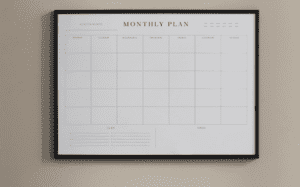The post is developed in partnership with BetterHelp
Parenting is a rewarding journey filled with love and joy. However, it also comes with its fair share of challenges. From juggling work and family responsibilities to managing household chores and attending to children’s needs, it’s no surprise that parents often find themselves feeling overwhelmed and stressed.
In this article, we’ll explore five effective stress-relief techniques specifically tailored for busy parents.
Effective stress-relief techniques specifically tailored for busy parents
It isn’t only important to manage your stress for your own sake. By observing you and your behavior, your child learns valuable life skills. As you prioritize your own health and coping strategies for stress management, you teach your child how to face life’s challenges with the right tools in their toolbox.

1. Deep Breathing Exercises
One simple yet powerful way to combat stress is through deep breathing exercises. Deep breathing can help activate the body’s relaxation response, promoting feelings of calm and tranquility amidst the chaos of daily life. You can practice deep breathing whenever you feel overwhelmed or tense.
According to the NHS, the following technique is an effective way to practice deep breathing exercises.
- Pick a position and a location where you can comfortably stand, sit in a supportive chair or lie down comfortably. Use the chair or Surface your body rests on to support Your arms and back. wear loose and comfortable clothing that allows you to breathe freely
- As you breathe, allow the breath to flow deep into your belly.
- Breathe in through your nose and out through your mouth.
- Breathe in steadily, gently, and regularly. you may find it helpful to count from one to five as you breathe. Don’t force your breath to last until the fifth count.
- Exhale steadily and gently counting again from 1:00 to 5:00 if this is helpful and comfortable.
- Repeat this process for 5 minutes.
By focusing on your breath you may calm your somatic system.
Research supports that this type of breathwork can increase parasympathetic activity and decrease sympathetic activity.
2. Mindfulness Meditation
Mindfulness meditation offers another effective way to alleviate stress and cultivate a sense of inner peace. By bringing attention to the present moment without judgment, parents can learn to navigate challenging situations with greater clarity and equanimity.
Mindfulness practices including mindful meditations have become a popular technique in both therapeutic settings and popular culture.
Mindfulness may help some people slow down and focus on the moment. This can promote calm.
The APA describes mindfulness meditation as involving two components: attention and acceptance. attention refers to focusing the mind on the present moment while acceptance promotes a gentle non-judgmental approach to observing occurrences in one’s life as well as our reactions to those conditions.
However, mindfulness is not simply a placebo effect. The APA additionally highlights a variety of studies that found a link between stress management and mindfulness meditation. An article published in psychosomatic medicine suggests that mindfulness activates multiple pathways in the brain. This study suggests that mindfulness may help with a variety of issues from pain management to stress.
A meta-analysis published in Clinical Psychology Review suggests that mindfulness is effective at stress management. In the conclusion of this analysis the authors state that mindfulness practices can be ‘’especially effective’’ for reducing anxiety and stress.
Incorporating mindfulness in your day can be as simple as developing a habit of slowing down and focusing gently on the present moment before you react to intense situations. it may also involve cultivating a habit of appreciating moments during your day that bring you pleasure or joy. Additionally, you might set aside 10 minutes of your day to practice a meditation in which you gently observe the thoughts and feelings that flow into and out from your mind as you rest.

3. Engage In Physical Activity
Engaging in some form of exercise or physical activity can help you and your children discharge energy and cope with stress.
Incorporating physical activity as a stress management tool does not necessarily mean spending an hour at the gym daily. Short bursts of activity throughout the day may have a beneficial effect on your overall well-being.
In fact, a study published in Frontiers in Physiology suggests that regular exercise is associated with emotional resilience to stressful situations.
4. Time Management Strategies
Effective time management may also help reduce parental stress and maintain a sense of balance.
Practicing effective time management strategies may reduce overall stress by creating more efficiency in your daily routine. Establishing certain routines can reduce chaos and stress in your household as well.
A study published in Advances In Speech Language Pathology suggests that effective time management strategies developed and complemented coping techniques of individuals engaged in structured and necessary activities.

5. Professional Support And Stress Relief
Sometimes our coping strategies aren’t enough to soothe the effects of our stressful lives. If things become overwhelming it’s a great idea to seek some professional support. therapists can teach and guide you toward stress management techniques that may improve your sense of well-being.
In a therapeutic setting, it’s also possible to receive a variety of biofeedback therapy which may provide additional support for your stress management. Biofeedback techniques target the physical and emotional responses to stress and certain stimuli.
The combination of detection of physiological and emotional responses through a variety of tests and Technology paired with coping strategy suggestions can create a powerful individualized path.
Learn more about Biofeedback techniques in this helpful article by online therapy provider, BetterHelp.
Reduce Stress While Teaching By Example
Of course, some or all of the stress management tools suggested here may help you live a calmer and more effective life. However, by modeling this behavior in your household in front of your children you also teach them potential stress management techniques.
You may find that deliberately suggesting these techniques to your children when they are experiencing stress deepens the lesson and normalizes paying attention to thoughts and feelings as well as practicing self-care.
Image Credit: depositphotos.com
.































